Accompaniment Approach
To be an effective philanthropic partner to organizations on the front lines of social change, we know we must build trust, listen, and stay flexible.
We embrace a type of partnership that goes beyond simply providing funding and stepping back. Building deep partnerships and placing value on shared learning along the journey toward systems change drives our approach to giving. Through what’s known as accompaniment, we stay deeply engaged with our partners, acknowledging the complex challenges they are navigating, and looking to them to identify where we can provide added support.
Inspired by Dr. Paul Farmer, founder of the global health organization, Partners In Health, a longtime grantee of Wagner’s, we have carried forward the concept of accompaniment and applied it to our grantmaking. The model centers on the importance of service, standing shoulder to shoulder, and walking alongside partners on the long road of building healthier and more just, vibrant communities. In philanthropy, it includes many of the important practices of trust-based funding like multi-year, general operating support, transparency, and simplified reporting.
We believe accompaniment philanthropy can start to shift the power dynamics of traditional models of philanthropy, by building relationships based on shared learning and mutual accountability. We strive to be a thought partner or a sounding board to navigate challenges together, seek to amplify their stories and advocate for their work, and work to connect them to the wider philanthropic network.
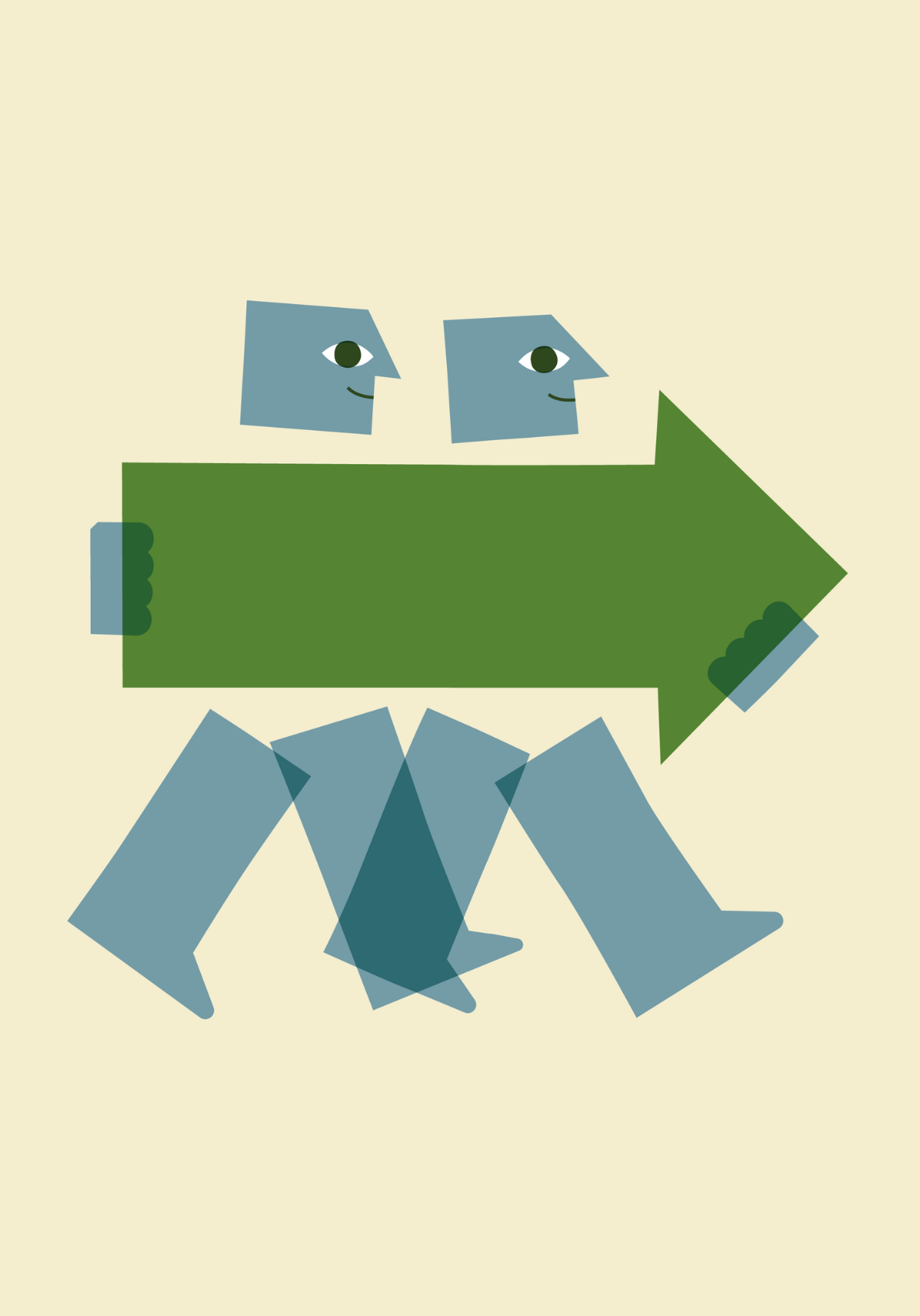
Accompaniment
To be an effective philanthropic partner to organizations on the front lines of social change, we know we must build trust, listen, and stay flexible.
Wagner Foundation grants are by invitation only. If you believe your work is a good fit, you can submit your contact information and a description of the work to info@wfound.org. Please be advised that although we review each inquiry, we only respond to those that we wish to pursue further.
Grantmaking FAQs
Wagner Foundation invests in healthier communities by supporting organizations dedicated to health equity, economic wellbeing, and art & culture in the US, Africa, Latin America, and Haiti.
Art & Culture: We center artists as catalysts of change and community development through local and national investments in contemporary visual art exhibitions, publications, public art, and visual arts organizations at all scales.
Economic Wellbeing: We collaborate with our partners to expand access to wealth-building opportunities and create pathways to fair wages, ensuring everyone has the resources they need to thrive.
Health Equity: We work with organizations focused on clinical healthcare delivery, public health systems, and the social, cultural, and environmental factors that impact health.
Please reference individual focus area pages for the specific funding priorities Wagner Foundation is currently focused on supporting.
Grantee partners must be 501(c)(3) tax-exempt nonprofit organizations or have a fiscal sponsor.
Wagner Foundation is not currently supporting initiatives outside our focus areas of health equity, economic wellbeing, and art & culture. Additionally, we do not fund individuals, private foundations, or political campaigns. Currently, we do not fund organizations registered outside of the US with rare exceptions. We do not fund capital campaigns, fundraising event sponsorships, or endowments.
Please see below for an overview of the geographic regions where we fund:
North America: US with a specific focus in Greater Boston
Africa: Priority countries include Malawi, Rwanda, Sierra Leone, and Zambia
Latin America & Caribbean: Priority countries include Guatemala, Haiti, and Peru
Please note, priority geographies may shift based on current funding priorities.
Generally, there are two types of grants and funding models that Wagner Foundation supports:
Types of Grants
-
- Programmatic: These kinds of grants are limited to supporting specific projects or initiatives that our partners are pursuing within the scope of Wagner Foundation’s funding priorities.
- General Operating: These include unrestricted grants that are aimed at supporting the overall operations of our grantee partners and are not necessarily tied to specific program goals.
Funding Models
-
- One-Time Grant: This takes the form of a single, short-term grant typically over a 12-month grant term.
- Multi-Year Grant: This longer-term funding commitment is sustained over a specified number of years.
Invited partners will work with their main contact to determine the grant process.
Wagner Foundation has two grant cycles per year — in June and December. Awards will be dispersed by the end of June or December, respectively.
Wagner Foundation grants are extended by invitation only. Current partners, please reach out to your main contact with any questions about our process.
If you are not a current grantee partner and believe your work is a good fit, you can submit your contact information and a description of the work to info@wfound.org. Please be advised that although we review each inquiry, due to our staff size, we only respond to those that we wish to pursue further.
Wagner Foundation’s Good Neighbor Fund is a revolving initiative focused on meeting the immediate needs of our local community. Grants are considered by invitation only and the focus of the fund shifts each year, responding to the most pressing needs of those we serve.
Current grantees should use our Grantee Portal to view completed and upcoming payments, grant requirements, and Wagner Foundation contact information. Please email info@wfound.org for technical assistance or other questions regarding the Grantee Portal.
If you are a historic grantee of Wagner Foundation and have questions about a previous grant, please email info@wfound.org.
Current Partners, December 2025
Art & Culture
A Blade of Grass nurtures socially engaged art through co-creation, dialogue, and flexible programs offering funding, research, and resources for artists.
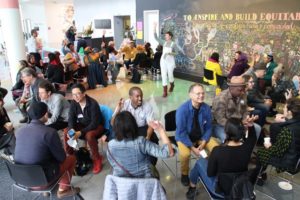
Economic Wellbeing
ACADES provides training and financing to youth in Malawi, enabling them to grow their agribusinesses, increase their incomes, and move out of poverty.
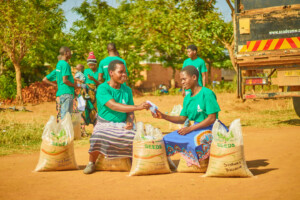
Economic Wellbeing
Acceso’s mission is to create lasting positive economic change in the lives of smallholder farming families and communities in Colombia, El Salvador, and Haiti.
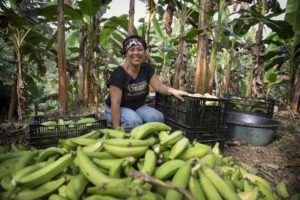
Health Equity
Accompany Doula Care is a nonprofit that increases access to community doula care so that everyone can experience the birth they deserve.

Economic Wellbeing Health Equity
African Collaborative invests exclusively in African-led organizations with flexible capital and support, believing that Africans are best equipped to build impact solutions in Africa.
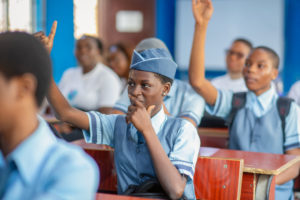
Good Neighbor Fund
Alianza DV Services assists and empowers those whose lives are affected by domestic and intimate partner violence.
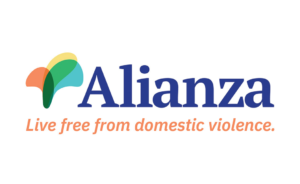
Art & Culture
Atlanta-based and globally-engaged for 50 years, Art Papers serves the culturally curious by expanding dialogues around contemporary art and culture through publishing and public programming.
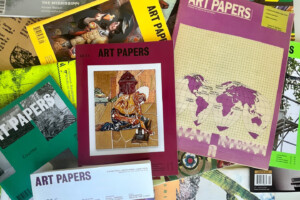
Art & Culture
Artadia is a nonprofit grantmaker supporting visual artists nationwide through $15,000 unrestricted grants, community building, advocacy, and professional development opportunities.
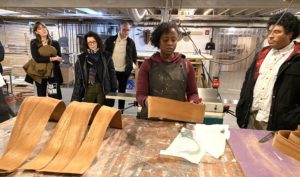
Art & Culture
The A&BC empowers artists and creative businesses to gain influence, seek justice, and thrive through affordable space, legal and business support, and fiscal sponsorship.
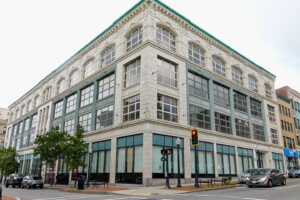
Art & Culture
at Louis Place (aLP) is a community for artists and writers and an ecosystem for artistic practice. We value liberation, experimentation, cooperation, and shared leadership.
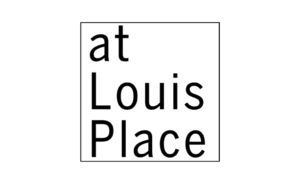
Economic Wellbeing
BAY-CASH is a pilot designed to evaluate a Direct Cash Transfer (DCT) Plus program for young adults experiencing/at risk of homelessness in Greater Boston.
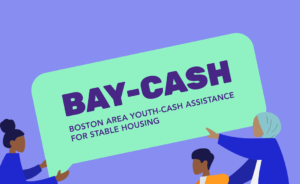
The Black Birthing Futures project in the Bloomberg School of Public Health at Johns Hopkins University is an in-depth case study of the experiences and impacts of Black midwives on their Black clients across the US with the goal to increase safe and effective birthing options for Black people.

Art & Culture
The nonprofit Black History in Action safeguards and renews the historic African-Caribbean church in Cambridgeport, St. Augustine’s, as an inclusive space for arts and culture, education, historical documentation, and community.
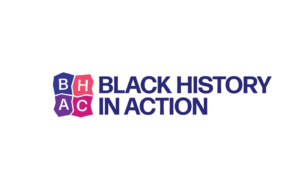
Art & Culture
BAMS Fest is a volunteer led organization that exists to break down barriers to arts and culture for communities and artists of color across Greater Boston.
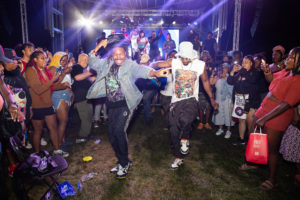
Art & Culture
Boston Art Review is a nonprofit arts organization that facilitates discourse about contemporary art and culture through publishing, programming, and events in Boston and beyond.
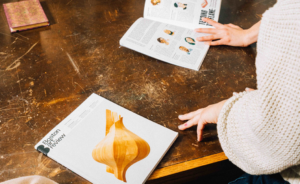
Art & Culture
Through residencies and public programming, BCA supports multidisciplinary artists with space and resources that inspire experimentation, risk-taking, and professional growth in Boston’s creative community.
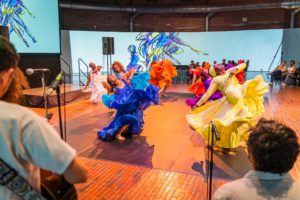
Health Equity
Boston Community Pediatrics (BCP) is the first nonprofit pediatric private practice in Massachusetts, and is focused on bringing income and racial equity to pediatric healthcare.
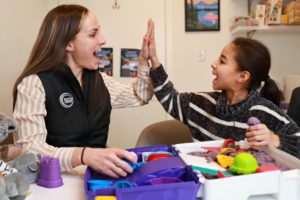
Good Neighbor Fund
BHCHP delivers high quality health care to over 11,000 homeless individuals and families within shelters, on the campuses of area hospitals, and on the street.
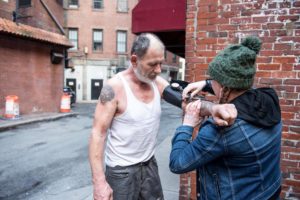
Health Equity
Boston Medical Center is committed to empowering all patients to thrive through innovative and equitable care. Our leadership in health equity, research, and teaching is driving the future of care.
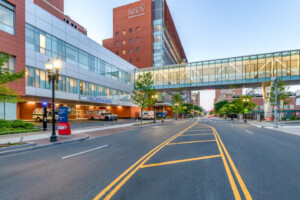
Art & Culture
Boston Public Art Triennial fosters relationships between artists and the public to create public art that opens minds, conversations, and spaces across Boston.
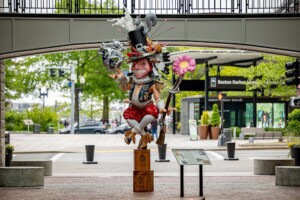
Art & Culture Economic Wellbeing
Boston Ujima Project, Inc. is a Black-led, member-led organization building cooperative economic infrastructure in Boston, with a mission to return wealth to working-class communities of color.
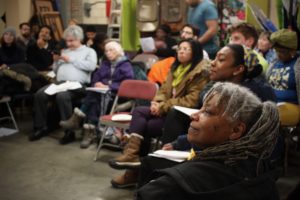
Good Neighbor Fund
BGCB empowers youth with academic support, mental health services, wellness programs, and job training to confront inequity and build opportunity, resilience, and lifelong success.
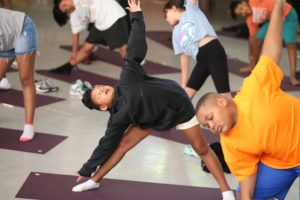
Economic Wellbeing
Breaktime’s mission is to break the cycle of homelessness by equipping young adults with the job and financial security they need to establish housing security.
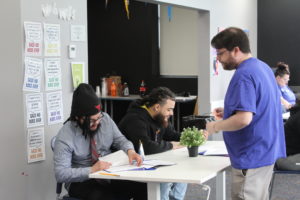
Art & Culture
Open Studios 2025 was a citywide celebration of emerging artists in Boston, bringing together the student communities of Boston University, MassArt, and SMFA at Tufts University.
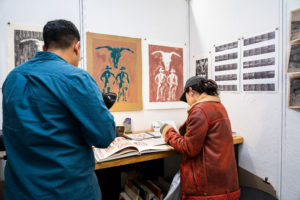
Health Equity
BHI’s mission is to improve access to and build capacity for dignified, affordable, and high-quality healthcare infrastructure in resource-constrained settings around the world.
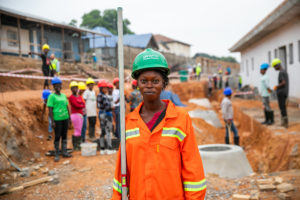
Art & Culture Economic Wellbeing Health Equity
The foundation of and for all of Cambridge, we harness the power of collective action to ensure a vibrant, just, and equitable city for everyone.
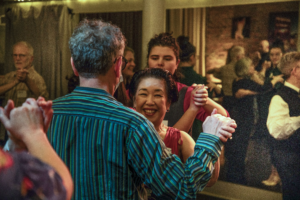
Good Neighbor Fund
Camp Harbor View offers summer camp, a year-round Leadership Academy, and comprehensive family services—including programs focused on economic mobility—to empower Boston youth and families.
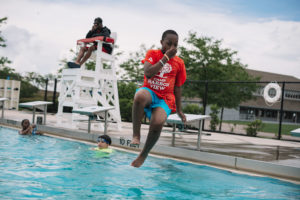
Good Neighbor Fund
Campaign for Catholic Schools (CCS) is a change-agent for rebuilding urban Catholic education in underserved communities in Greater Boston. We’re changing lives. Every day.
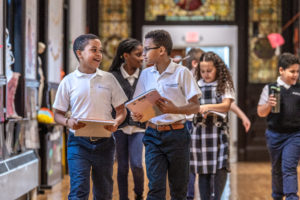
Art & Culture
The Carpenter Center for the Visual Arts is Harvard University’s home for contemporary art, fostering community through exhibitions, programs, commissions, and residencies that support contemporary practice.
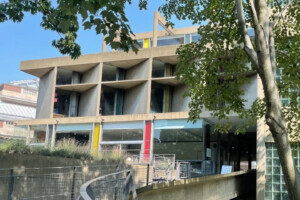
Good Neighbor Fund
Casa Myrna delivers solutions to end domestic and dating violence through intervention, awareness, and prevention.
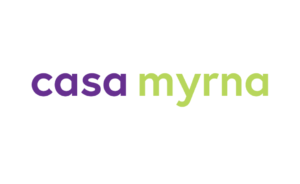
The Center for Art, Design, and Visual Culture is a forum for public research, exhibition, publication, and programming serving the Baltimore region and beyond.
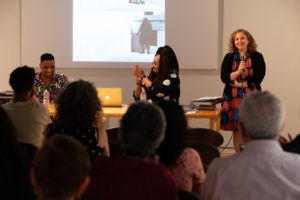
Health Equity
The Center for Black Maternal Health and Reproductive Justice seeks to protect the Black birthing experience by advocating for quality, equitable, and respectful care in childbirth.
Sector Effectiveness
CEP provides data, feedback, programs, and insights to help individual and institutional donors improve their effectiveness.
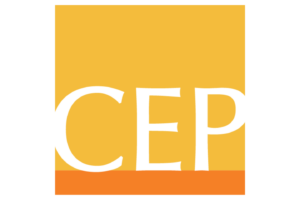
Good Neighbor Fund
The BID fosters placekeeping in Central Square, leveraging relationships to benefit residents, artists, and entrepreneurs. Our Block-by-Block ambassadors also support the community and maintain public spaces.
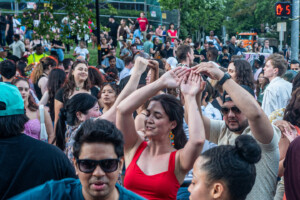
Good Neighbor Fund
Centro Presente is a member-driven Latin American immigrant organization that struggles for immigrant rights and for economic and social justice.

Art & Culture Economic Wellbeing
The Chinatown Community Land Trust works to stabilize the future of Chinatown through community control of the land, development without displacement, and community governance of shared resources.
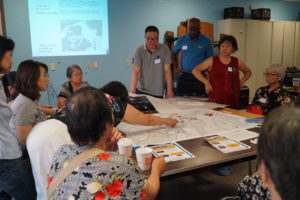
Art & Culture Economic Wellbeing
City Life/Vida Urbana is a grassroots community organization committed to fighting for racial, social and economic justice and gender equality by building working-class power.
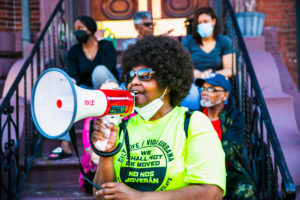
Health Equity
Community Health Impact Coalition is making professional community health workers the norm worldwide by changing guidelines, funding, and policy.
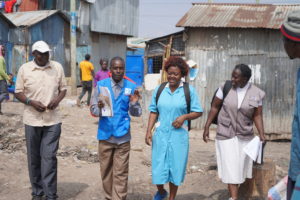
Art & Culture
Contemporary Art Museum Houston’s (CAMH) aims to connect artists and audiences and adventurously promote the catalytic possibilities of contemporary art in and for our communities.
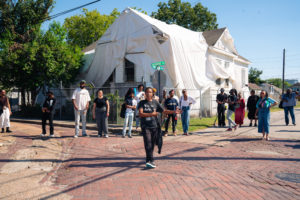
Art & Culture
Located in St. Louis, Counterpublic is a triennial exhibition reimagining the role of art in public life.
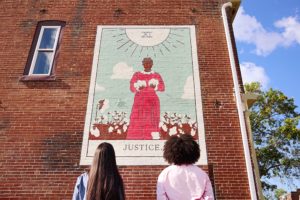
Good Neighbor Fund
De Novo provides client-driven integrated legal and mental health services to overcome the impacts of poverty, inequity, and trauma.
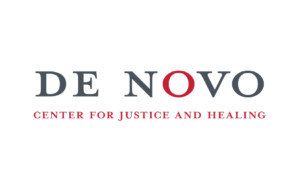
Good Neighbor Fund
Dorchester Food Co-op is a community- and worker-owned grocery store providing healthy food access and building economic power in Boston’s largest and most diverse neighborhood.
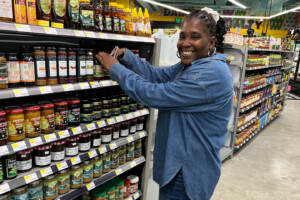
Good Neighbor Fund
Since 1978, DOVE has provided prevention and recovery services (trauma-informed counseling, housing assistance, legal advocacy, support groups) to survivors of domestic violence in Norfolk County.
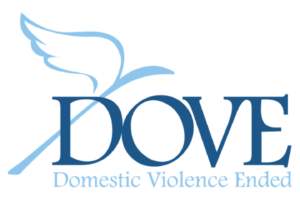
Economic Wellbeing
Dudley Street Neighborhood Initiative is a community planning and organizing nonprofit based in Roxbury and North Dorchester.

Art & Culture Health Equity
Eastern Woodlands Rematriation is a mutual support network for tribal food producers, medicine keepers, fisher folk, hunters, and knowledge keepers led by indigenous two-spirits, queer, women + femmes, and tribal families.
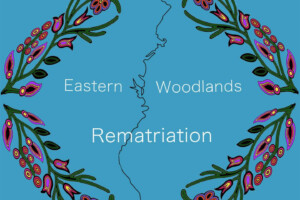
Good Neighbor Fund
Elizabeth Freeman Center provides free, confidential, comprehensive rape crisis and domestic violence services to survivors in and around Berkshire County.
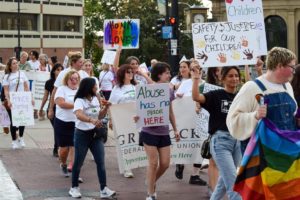
Art & Culture
Embrace Boston’s mission is to dismantle structural racism through our work at the intersection of arts, culture, research, and policy.
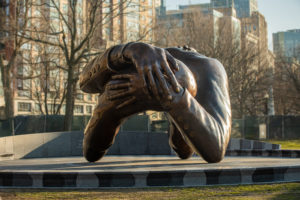
Good Neighbor Fund
FamilyAid is Boston’s largest nonprofit organization solely dedicated to serving families facing homelessness by providing prevention services, emergency shelter, housing placement, and comprehensive case management.
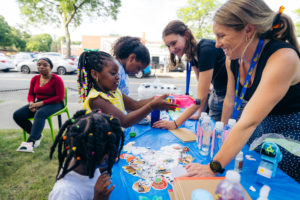
Good Neighbor Fund
For over four decades, Father Bill’s & MainSpring (FBMS) has been a leader in the effort to end homelessness across Southeastern Massachusetts.
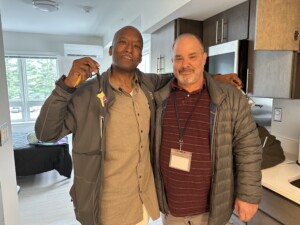
Health Equity
The Financing Alliance for Health (FAH) is an African-based organization which brings expertise in health policy and financing to enable African governments to optimize existing funds and secure new funding to build scalable and sustainable health systems.
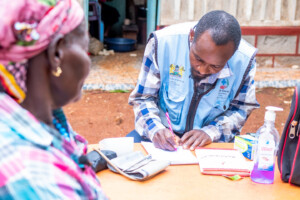
Art & Culture
Floating Museum is an art collective that creates site-responsive works connecting art, community, and civic institutions to reimagine public space and amplify underrepresented histories.
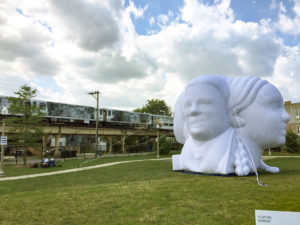
Good Neighbor Fund
For over 40 years, the Food Bank has been partnering with the community to end hunger in Western Massachusetts.
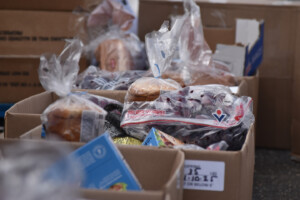
Good Neighbor Fund
Food For Free is Greater Boston’s logistics backbone for healthy food access, sourcing food to serve 60+ recipient organizations and 132,000 Massachusetts residents annually.
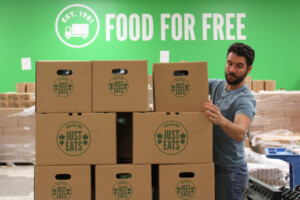
Economic Wellbeing
We convene and facilitate to elevate everyday adults’ expertise and leadership. We unite residents across differences to build trust, shared power, and community-driven change.
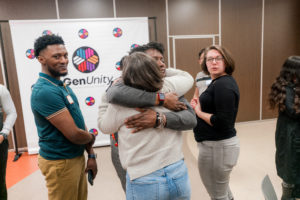
Economic Wellbeing Health Equity
With programs in the U.S. and Africa, Global Health Corps cultivates inclusive, resilient leaders who are reimagining public health and transforming systems.
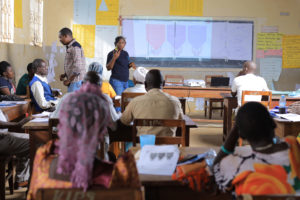
Sector Effectiveness
GEO is a community of funders committed to transforming philanthropic culture and practice.
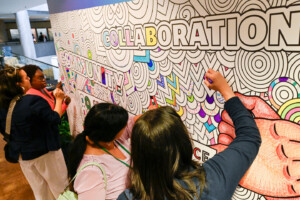
Good Neighbor Fund
HarborCOV provides linguistically and culturally appropriate, high-quality emergency and support services along with safe, affordable housing and advocacy on behalf of domestic violence survivors.
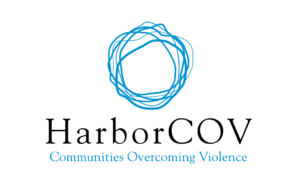
Good Neighbor Fund
Heading Home’s mission is to end homelessness in Eastern Massachusetts by providing a supported pathway to self-sufficiency that begins with a home, together with critical services such as life skills, financial literacy, and job training.
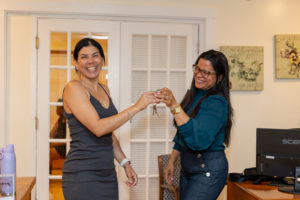
Health Equity
Health Equity International provides compassionate, high-quality health services in southern Haiti. Our model combines community health programs with specialized clinical care at our referral hospital.
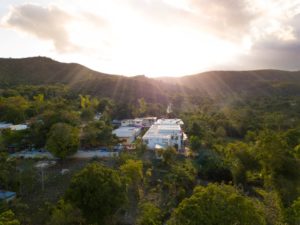
Health Equity
The Healthcare Anchor Network catalyzes its 75+ member health systems to utilize an “anchor mission” approach to create healthy and thriving local communities
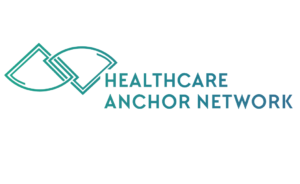
Good Neighbor Fund
History Cambridge is a community-driven organization dedicated to uncovering and sharing the rich tapestry of Cambridge’s past.
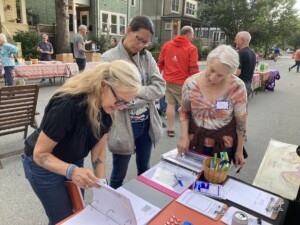
Economic Wellbeing
HomeStart’s mission is to end homelessness by helping individuals obtain housing and become stable, and by developing strategies to prevent homelessness before it starts.
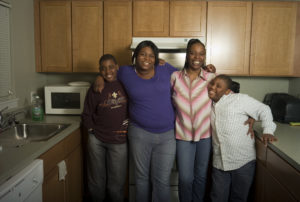
Good Neighbor Fund
Hope & Comfort expands access to essential hygiene products for individuals across Massachusetts, strengthening health, confidence, and equity through compassionate, community driven partnerships.
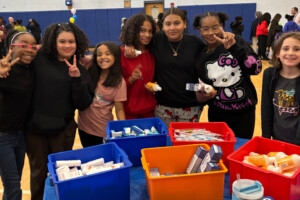
Good Neighbor Fund
Through “Education – Integration – Advocacy,” IFSI’s mission is to center the voice of immigrants and expedite their successful integration into the fabric of the United States.
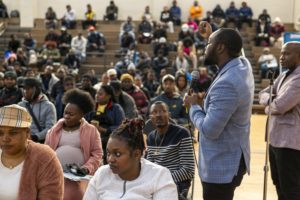
Art & Culture
Independent Curators International (ICI) supports curators to help create stronger art communities through experimentation, collaboration, and international engagement.
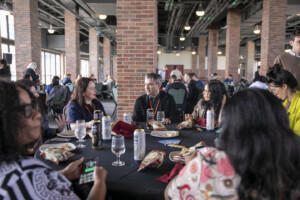
Art & Culture
The ICA/Boston shares the pleasures of reflection, inspiration, provocation, and imagination that contemporary art offers through public access to art, artists, and the creative process.
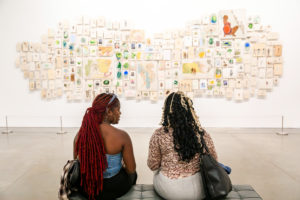
Health Equity
Integrate Health works to make quality primary healthcare accessible to all, starting in francophone West Africa, by partnering with governments to strengthen health systems.
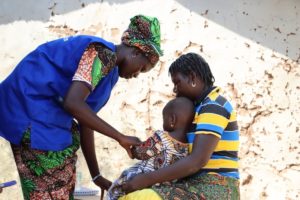
Art & Culture
The Isabella Stewart Gardner Museum, housed in a Venetian-style palace with an interior courtyard, is an unparalleled Boston cultural institution offering exhibitions and educational programming.

Economic Wellbeing Health Equity Good Neighbor Fund
La Colaborativa empowers our neighbors to enhance the social and economic health of communities; and to hold institutional decision-makers accountable to the people.
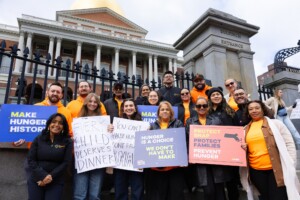
Economic Wellbeing
LEAF is a nonprofit community loan fund offering flexible capital and support to cooperatives and underserved businesses that grow access to fresh food, housing, and ownership.
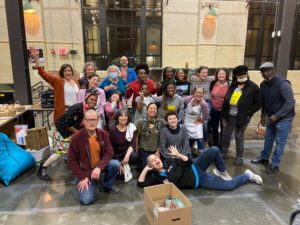
Good Neighbor Fund
LSA believes every person deserves a place to call home. We provide a safe environment for each individual pursue their goals for independence and self-sufficiency.
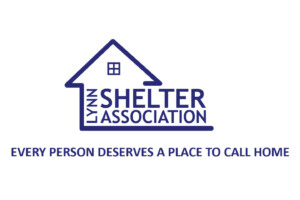
Good Neighbor Fund
Mabel Center’s mission is to provide pro bono legal representation primarily to asylum seekers who have faced disproportionate challenges on their path to safety.

Art & Culture Health Equity
MASS believes that architecture has a critical role to play in supporting communities to confront history, shape new narratives, collectively heal and project new possibilities.
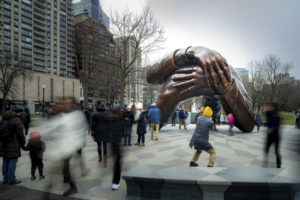
Art & Culture
MASS MoCA is a contemporary art museum that emphasizes bold creative exploration and fosters surprising connections between people every single day.
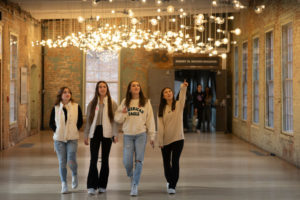
Good Neighbor Fund
MassBike is a statewide, non-profit advocacy organization with the mission to promote better bicycling through improved infrastructure, access, and safety, for all people throughout Massachusetts.
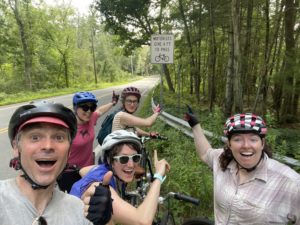
Art & Culture
MASSCreative organizes artists, creatives, cultural organizations, creative businesses, and elected officials to advocate for an equitable, inclusive, and resourced creative sector for everyone in Massachusetts.
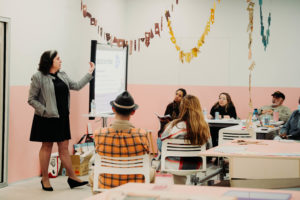
Good Neighbor Fund
Merrimack Valley Food Bank works with a network of 100+ partner food pantries and meals programs to provide nutritious food to our neighbors in need.
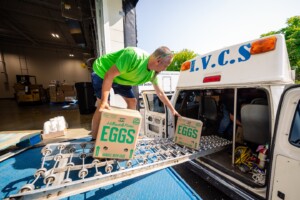
Good Neighbor Fund
MIRA is a multi‐ethnic coalition that convenes, serves, and organizes together with community leaders and allies for the advancement of all immigrants across the Commonwealth.
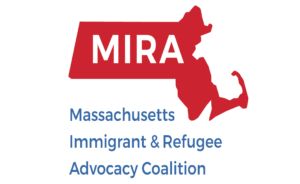
Art & Culture
Monument Lab is a nonprofit public art, history, and design studio dedicated to advancing justice by reimagining monuments as places for belonging, learning, and healing.
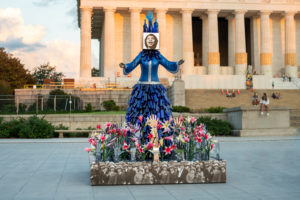
Economic Wellbeing
More Than Words is a nonprofit social enterprise that empowers system-involved youth to take charge of their lives by taking charge of a business.
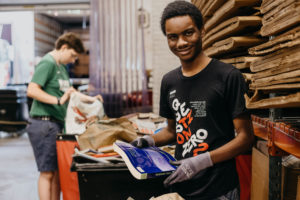
Art & Culture
The Museum of Contemporary Art joins today’s artists and audiences in courageous pursuit of a creative and diverse future.
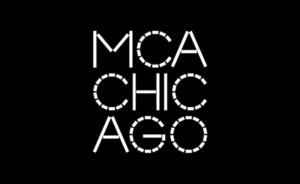
Health Equity
Muso is an international NGO that champions equitable healthcare. We provide quality, timely care, support national governments, and influence policy and practice. Right care. Right time. Right now.
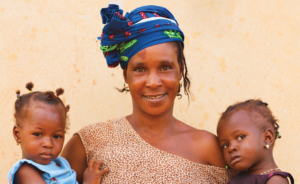
Economic Wellbeing Health Equity
NACPM unites Certified Professional Midwives to advance birth equity, promote physiologic birth, strengthen midwifery’s voice, and transform maternal health systems through diversity, advocacy, and collective action.
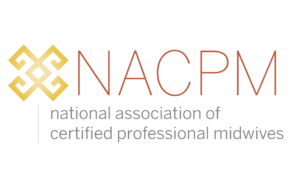
Health Equity
Our mission is to offer midwifery-led reproductive healthcare, and provide support through life transitions such as family planning, pregnancy, loss, parenting, and menopause.
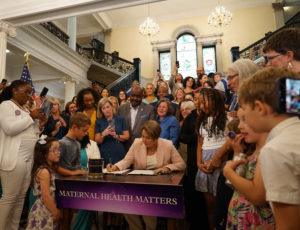
Sector Effectiveness
NEID Global is a national peer-to-peer learning network that fosters community and collaboration among globally minded philanthropists with a deep commitment to global equity and collective impact.
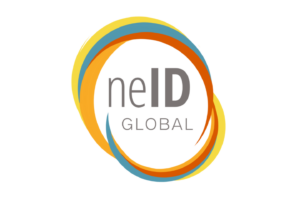
Good Neighbor Fund
Established in 1969, Newport Classical celebrates the living art form of classical music by presenting world-class artists in intimate and iconic locations.

Good Neighbor Fund
Newport Hospital is a state-of-the-art healthcare facility offering services including an emergency department, diagnostic and surgical services, a rehabilitation center, and birthing center.
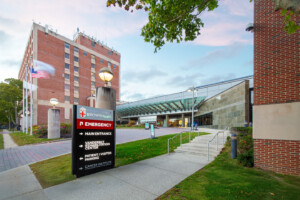
Good Neighbor Fund
Creating a safe and supportive community that fosters self-determination and wellbeing for women, transgender, and nonbinary people on their journey through and beyond homelessness.
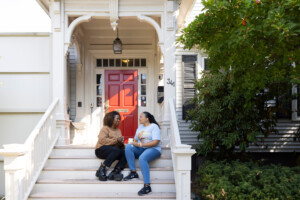
Good Neighbor Fund
Formed in 1989, the PAIR Project provides free legal services to asylum seekers and promotes the rights of detained immigrants in Greater Boston.

Health Equity
Partners In Health is a non-profit, social justice organization striving to make health a human right for all, starting with those who need it most.
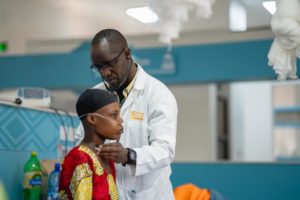
Art & Culture
Pérez Art Museum Miami (PAMM) is a modern and contemporary art museum dedicated to collecting and exhibiting international art of the 20th and 21st centuries.
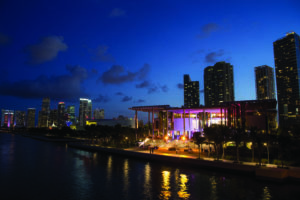
Good Neighbor Fund
We support philanthropy in becoming more intentional, impactful, & collaborative partners. Through networks, statewide reach, & convening we create a place of belonging for funders, nonprofits, government, and private sector.
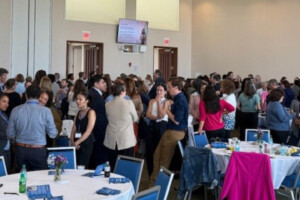
Health Equity
Pivot is a science-led healthcare organization partnering with the government of Madagascar to save lives and transform the public health system.
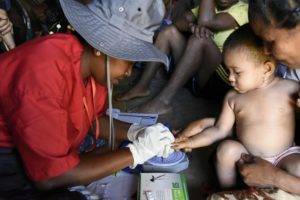
Art & Culture
Primary Information is a nonprofit publisher of new and archival artists’ books and artists’ writings.
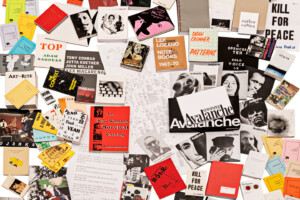
Art & Culture
Printed Matter is dedicated to art in book form. Since 1976, we’ve fostered the distribution, understanding, and appreciation of artists’ books through our nonprofit programs.
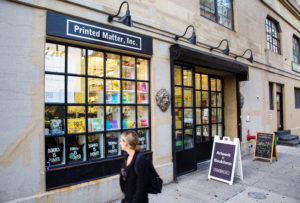
Health Equity
We compassionately support families through grief and loss offering education, advocacy, and connection to inspire healing, unity, and hope within our community.
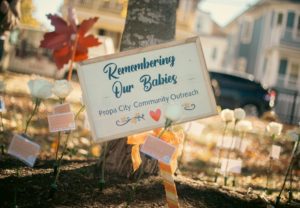
Art & Culture
Public Media Institute is a Chicago nonprofit building midwestern artist-run infrastructure through publications, community radio, retail experiments, coalitions of artist organizations, and mutual aid projects.
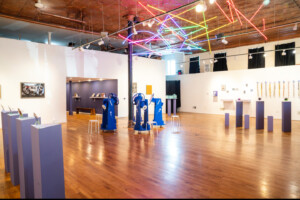
Art & Culture
Public Trust, a non-profit arts organization in West Philadelphia, is dedicated to cultivating learning, creativity, and collaboration in pursuit of justice and equality.
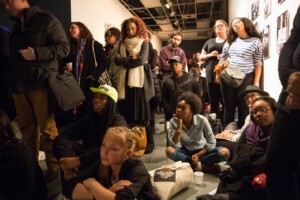
Good Neighbor Fund
We work to make a difference in the lives of children, families, veterans, and communities in need by improving their health, education, and recreational opportunities.
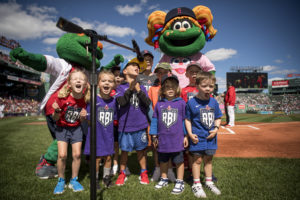
Health Equity
The Regis In Haiti project is focused on advancing the nursing profession by training nurse educators, strengthening clinical skills among student and novice nurses, and fostering evidence-based research to bolster the country’s healthcare system.
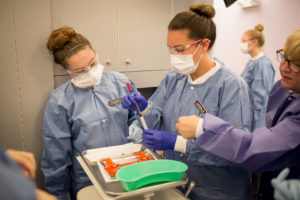
Art & Culture Health Equity
RSP’s mission is to educate and empower women of African descent regarding common, yet rarely discussed, diseases of the reproductive system disproportionately that affect them.
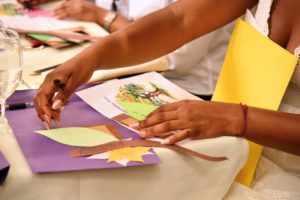
Economic Wellbeing
Root Capital works with small and growing agricultural businesses, investing in their growth to become “engines of impact,” providing rural populations with more resilient livelihoods.
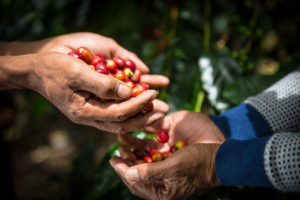
Good Neighbor Fund
Founded in 1974 as the first women’s shelter in the nation. Providing compassionate, immediate and long-term support for 12,000 women a year.
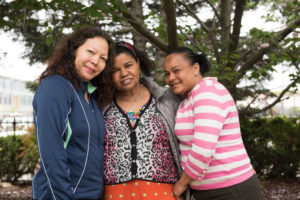
Art & Culture
The museum explores the history of slavery in the North and the resistance and political activism of enslaved and free Black people in the eighteenth century
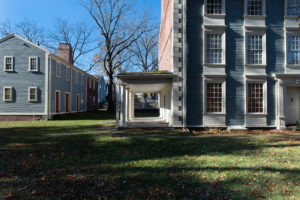
A maternal sanctuary reclaiming birth as sacred, SBV weaves ancestral wisdom, community care, and collective liberation to restore thriving life for BIPOC families.
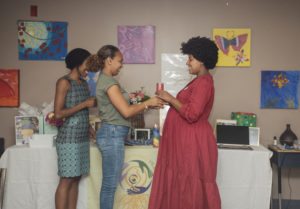
Economic Wellbeing Health Equity
Seed Global Health partners with governments and health institutions to educate health workers, strengthen the quality of health services, and support policies toward life-saving healthcare delivery.
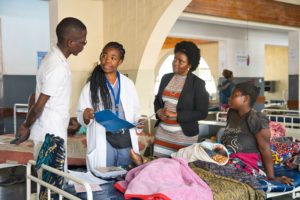
Art & Culture
SFMOMA believes the art of our time is vital and that art and the creative process can open minds and help build a better world.
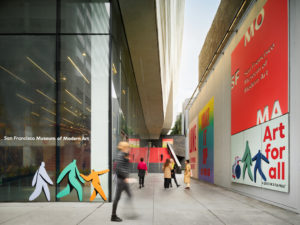
Art & Culture
Sibyls Shrine is an art collective and residency program for Black artists who m/other. We are rooted in our own radical care, rest and support.
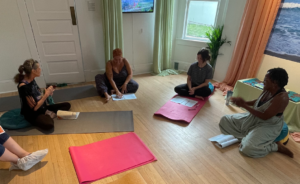
Art & Culture
Committed to innovation, the Solomon R. Guggenheim Foundation collects, preserves, and interprets modern and contemporary art, and explores ideas across cultures through dynamic curatorial and educational initiatives and collaborations.
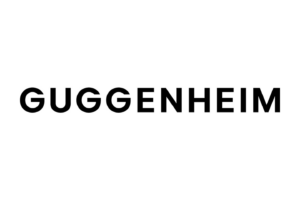
Good Neighbor Fund
Spoonfuls is New England’s largest food recovery organization. They address the health, environmental, and economic impacts of wasted food by keeping it out of landfills.
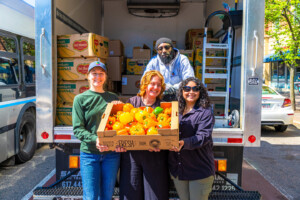
Good Neighbor Fund
St. Peter School is a diverse, faith-filled community that nurtures strong values, academic excellence, and character, preparing students to become compassionate, confident future leaders.
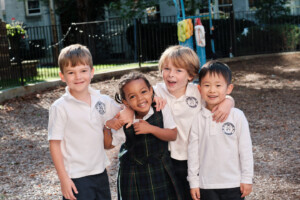
Art & Culture
The Aldrich Contemporary Art Museum serves as a leading incubator for artists at critical creative junctures, providing a collaborative platform that engages and inspires.
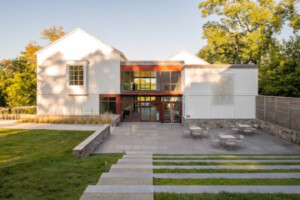
Good Neighbor Fund
The Bob Moses Legacy Conference was founded in 2022 and focuses on the critical intersection of education, voting, and mass incarceration.
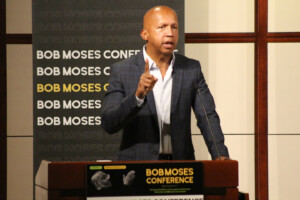
Good Neighbor Fund
The Center for Cooperative Development and Solidarity is incubating a network of worker-owned cooperatives in the immigrant community of East Boston to promote economic empowerment.
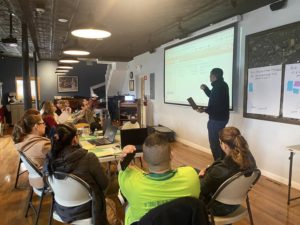
Good Neighbor Fund
The Greater Boston Food Bank (GBFB) provides nutritious food and resources to 600,000 individuals across Eastern Massachusetts, partnering with communities to end hunger and advance health equity.
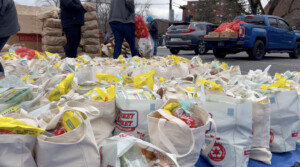
Economic Wellbeing
For ourselves and our descendants, we are urban alchemists, cultural weavers, and designers and developers of beautiful new urban ecosystems and sanctuaries.
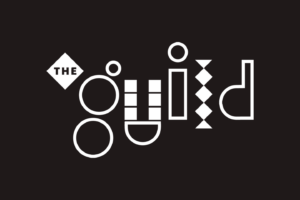
Economic Wellbeing
The Loop Lab empowers opportunity youth through media arts training and paid fellowships, advancing education, employment, and entrepreneurship via digital storytelling and workforce development.
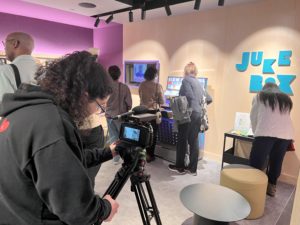
Good Neighbor Fund
Since 1973, The Women’s Center has provided comprehensive, wraparound, culturally relevant, trauma-informed services for domestic violence and sexual assault survivors, and their loved ones.
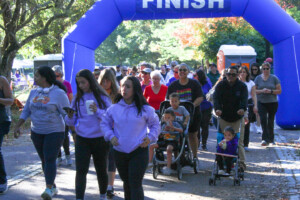
Good Neighbor Fund
United Interfaith Action of Southeastern MA is a non-profit, faith-based community organization founded in 1996, addressing social justice issues in Fall River and New Bedford.
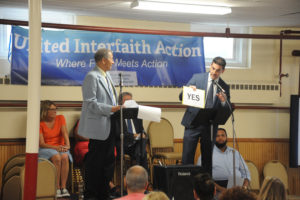
Art & Culture
United States Artists is a national arts funding organization dedicated to supporting artists and cultural practitioners across the country by providing unrestricted awards and other resources.
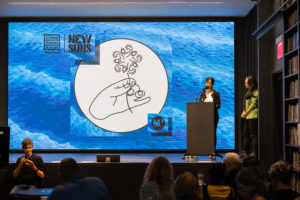
Art & Culture
VIA Art Fund champions artistic production, thought leadership, and public engagement by funding visionary projects that innovate, educate, and connect audiences with contemporary visual art.
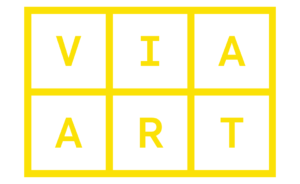
Health Equity
VillageReach transforms health care delivery to reach everyone so that each person has the health care needed to thrive.
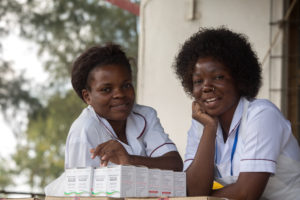
Health Equity
Vital Village Networks advances child and family wellbeing by strengthening community leadership, fostering equity-driven partnerships, and co-creating solutions that transform health, education, and social systems.

Good Neighbor Fund
Way Finders advances housing stability and economic mobility across western Massachusetts through affordable housing, supportive services, and community investment – empowering individuals and strengthening neighborhoods throughout the region.
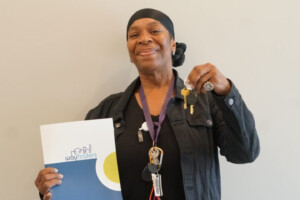
Art & Culture
Founded in 1860, Bard College is a four-year, residential college of the liberal arts and sciences located 90 miles north of New York City.
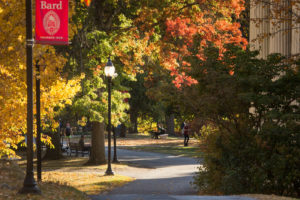
Good Neighbor Fund
Worcester County Food Bank is dedicated to engaging, educating, and leading Worcester County, Massachusetts in creating a hunger-free community.
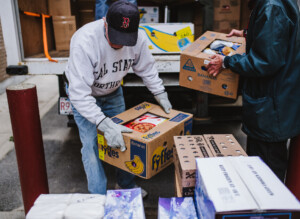
Economic Wellbeing
Year Up United is a workforce development organization committed to expanding access to economic opportunity for all young adults by providing business and talent solutions.
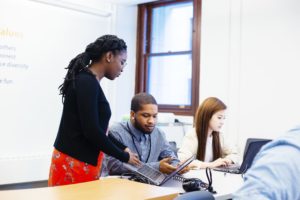
Good Neighbor Fund
Founded in 1911, the YWCA Southeastern Massachusetts is dedicated to eliminating racism, empowering women, and promoting peace, justice, freedom, and dignity for all.
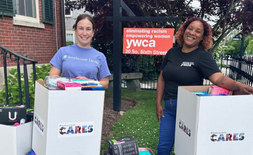
Geographies
| Africa | Priority countries include Malawi, Rwanda, Sierra Leone, and Zambia |
| Latin America & Caribbean | Priority countries include Guatemala, Haiti, and Peru |
| North America | US with a specific focus in Greater Boston |
